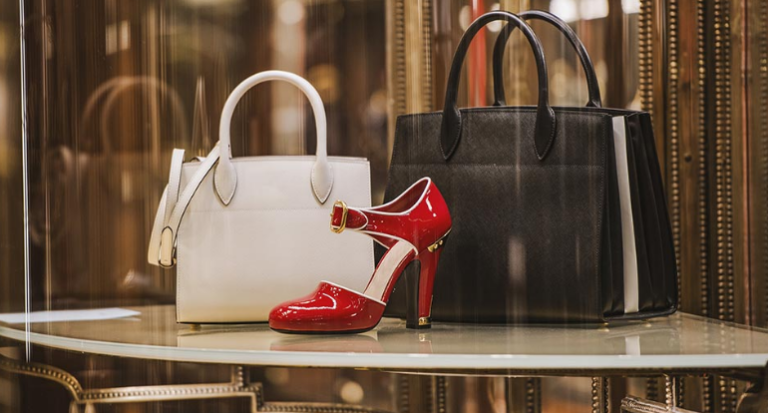4 Luxury Marketing Strategies to win New Age Consumers in 2020
Luxury consumer behavior is transforming significantly due to changing consumer’s demographics, lifestyle, values and interests. Over the years, the meaning and definition of luxury has evolved. Today, luxury is no longer restricted to ‘elite few’ rather more and more consumers are trading up to purchase these products. New-age buyers save every month to buy new Mercedes Benz or new Gucci bag. This market segment spend lavishly when they have money, without much consideration about their debt levels. Marketers cannot ignore them as they provide better lifetime value and loyalties.
Luxury market which has traditionally relied on a sense of ostentatiousness and splendor, need to align itself with the values of new generational cohort. There has been shift in luxury consumption from conspicuousness to personal fulfilment. For millennials luxury is more about experience and authenticity rather than just flashy brand logos. Brands should create marketing strategies by keeping in mind, buying patterns, media habits and psychological motivators of today’s luxury consumers. To remain relevant, luxury companies should reinvent themselves. They need to clearly define what they stand for and what their core values are? They should ask themselves, are the 4 Ps of marketing still relevant? Or it’s about the 4 Es: Environment, Experience, Emotion and Ecommerce.
Environment: Luxury warrants a psychological cost categorized as “guilty pleasures” which might lead to negative emotions after the purchase. Therefore, growing number of people are buying sustainable luxury products to experience “guilt-free” enjoyment. As per a Neilson survey performed with 30,000 consumers in 60 countries across the globe, 60% of global consumers were willing to pay extra for sustainable products. This new perspective and consciousness toward others will shape the future values of luxury industry. Luxury brands along with consumers can no longer overlook sustainability. Brands are expected to regard environmental sustainability as a core pillar of their strategies. Brands like Chanel, Louis Vuitton and Stella McCartney, among many others, have taken pledge to go cruelty free in all future collections. They are continuously reviewing their value chain to make it transparent and are shifting to plant based alternatives.
Remember: Young consumers look for luxury brands that don’t just elevate status but really touch their souls and help them to create connection with the wider world.
Experience: Luxury has always been about the best quality, the finest materials and greatest savoir-faire. However, there has been paradigm shift in the expectations of the new consumers. They want to feel special, wish to get personalized treatment and desire to obtain immersive experience during their complete shopping journey. The entire experience of purchasing luxury goods is as important as the product itself. Luxury brands need to continuously create new experiences and wow moments for their customers. This is an amazing way to build a story in consumer’s mind- a story that you want customers to take home with them and cherish forever. For instance, Tiffany is opening its first café ‘Tiffany Blue Box’ in London to provide a way to its customers to immerse themselves in the world of Tiffany.
Remember: You must focus on delivering customer experience and not just products. Make your consumers part of your story, clearly communicate the value proposition to them and they will become yours forever.
Emotion: Neuroscience reveals that decision to buy a luxury item is overwhelmingly emotional. For today’s consumers it is not enough that a luxury product is well-crafted with great history and heritage. They cherish products which are authentic with unique and intangible quality of truth. Each promotional campaign must express truth which breathes life into the brand, conjuring perceptions of genuineness and endurance. New generation value the opportunity to interact with the brand and become part of the brand. Through evoking emotions of pride and awe, luxury brands can build deeper connect with their consumers. Brands must think genuinely about what their clients actually care for and go an extra mile to make them live it. The ability to engage, empower and innovate is a crucial factor for becoming successful luxury brand. Gucci has launched a call center in Florence to give consumers a direct seamless connection to the Gucci community throughout the world anywhere and anytime. It enables consumers to interact with call-center assistants over phone, email or live chat and build personal relationships with assistants, similar to brick and mortar world.
Remember: You must build emotional relationship with your clients both offline and online to win them.
Ecommerce: Being a high involvement product, in-store shopping has been the way to shop for luxury brands. These high-end brands have been really slow to embrace ecommerce as a distribution channel. However, nearly 80 percent of luxury sales today are ‘digitally influenced’. Consumers hit one or more digital touch points in their luxury shopping journeys. Online luxury sales is projected to reach $70 billion globally by 2025. As per recent Euromonitor International Report, luxury goods sales are growing nearly three times faster online than in physical retail. Therefore, traditional luxury brands cannot ignore digital platform today. These brand are now trying to catch up with the changing buying patterns of the affluent consumers. Brands from Burberry to Louis Vuitton, all are making efforts to provide a consistent brand experience both in-store and online. The major challenge for all these brands is to maintain the perceived cache of luxury in the digital world.
Remember: You cannot afford to work in silos today. The combination of offline and online is the way forward. Today, the rule book for what it means to be a luxury brand that is loved by its customers has profoundly changed. It’s no more just about making the finest product. It’s also not just about the brand repute that has been built over years. In my opinion it is about really aligning with a sense of deeply held values to create an authentic brand that connect with consumers.
(This article has been published in indianretailer.com on February 4 2020)
